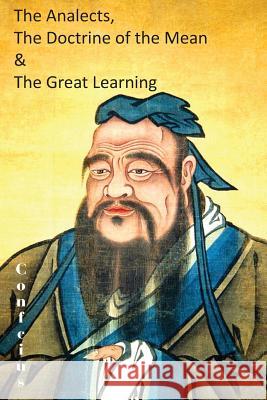The Analects, the Doctrine of the Mean & the Great Learning » książka
The Analects, the Doctrine of the Mean & the Great Learning
ISBN-13: 9781483703541 / Angielski / Miękka / 2014 / 98 str.
Analects of Confucius, is the collection of sayings and ideas attributed to the Chinese philosopher Confucius and his contemporaries. The Doctrine of the Mean is both a doctrine of Confucianism and also the title of one of the Four Books of Confucian philosophy. The text is attributed to Zisi the only grandson of Confucius. The Great Learning was one of the Four Books in Confucianism. The Great Learning had come from a chapter in the Classic of Rites which formed one of the Five Classics. It consists of a short main text attributed to the teachings of Confucius and then ten commentary chapters accredited to one of Confucius' disciples Confucius believed that the welfare of a country depended on the moral cultivation of its people, beginning from the nation's leadership. He believed that individuals could begin to cultivate an all-encompassing sense of virtue through ren, and that the most basic step to cultivating ren was devotion to one's parents and older siblings. He taught that one's individual desires do not need to be suppressed, but that people should be educated to reconcile their desires via rituals and forms of propriety, through which people could demonstrate their respect for others and their responsible roles in society.
Analects of Confucius, is the collection of sayings and ideas attributed to the Chinese philosopher Confucius and his contemporaries.The Doctrine of the Mean is both a doctrine of Confucianism and also the title of one of the Four Books of Confucian philosophy. The text is attributed to Zisi the only grandson of Confucius. The Great Learning was one of the Four Books in Confucianism. The Great Learning had come from a chapter in the Classic of Rites which formed one of the Five Classics. It consists of a short main text attributed to the teachings of Confucius and then ten commentary chapters accredited to one of Confucius disciplesConfucius believed that the welfare of a country depended on the moral cultivation of its people, beginning from the nations leadership. He believed that individuals could begin to cultivate an all-encompassing sense of virtue through ren, and that the most basic step to cultivating ren was devotion to ones parents and older siblings. He taught that ones individual desires do not need to be suppressed, but that people should be educated to reconcile their desires via rituals and forms of propriety, through which people could demonstrate their respect for others and their responsible roles in society.











